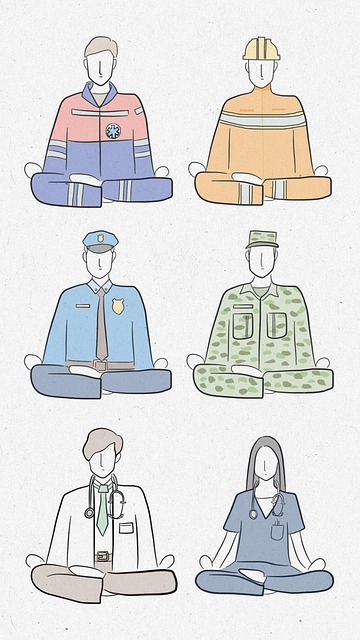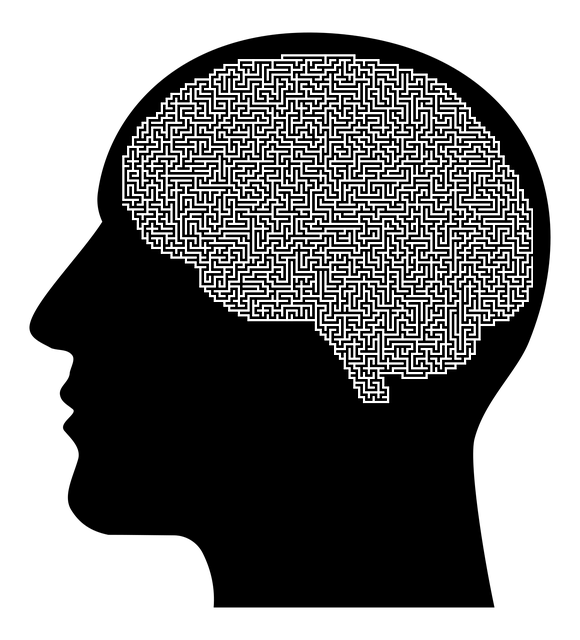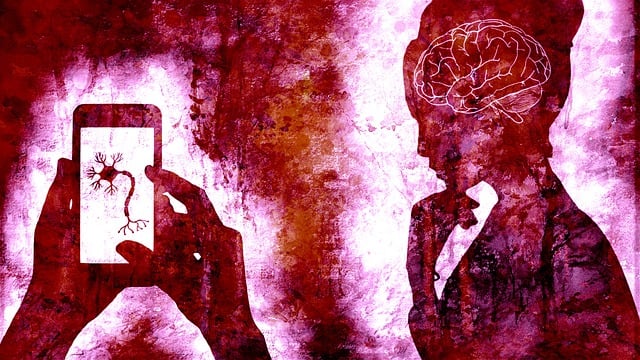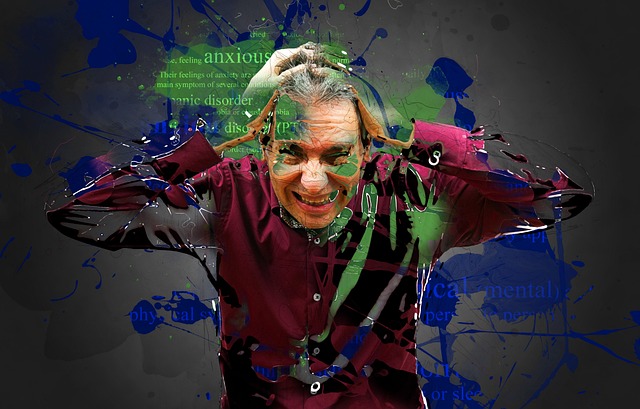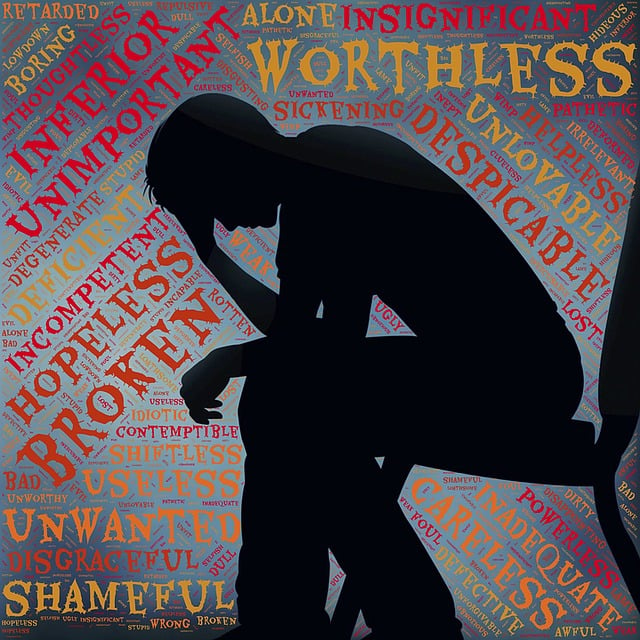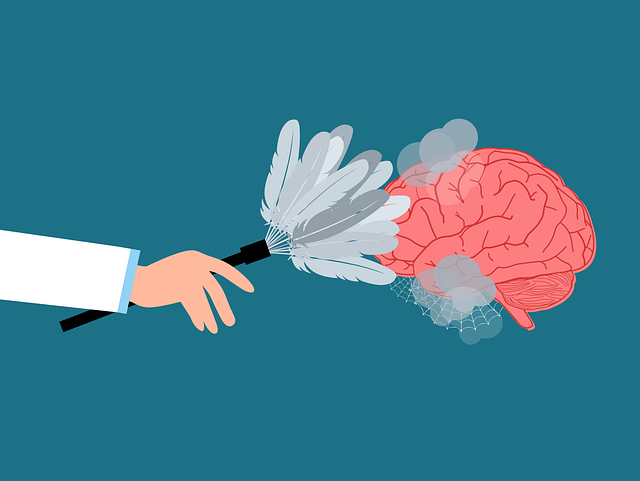The media plays a pivotal role in shaping public perceptions of mental health. Positive representations, such as those showcasing characters receiving Castle Rock Mental Health Evaluations and engaging in therapy, foster empathy, reduce stigma, and promote supportive communities. Negative depictions, on the other hand, perpetuate stereotypes and misinform the public. Media highlighting emotional intelligence and resilience offers a more nuanced perspective, encouraging positive thinking. Organizations like Castle Rock Mental Health Evaluations & Therapy advocate for accurate, de-stigmatized portrayals, emphasizing the importance of Emotional Intelligence and Empathy Building Strategies in media creation to improve mental healthcare accessibility and support systems.
Mental illness representation in media significantly shapes public perception, often perpetuating stereotypes or misconceptions. This article delves into the impact of media portrayals on mental health views, identifying harmful stereotypes prevalent in popular culture. We propose ‘Castle Rock Mental Health Evaluations & Therapy’ as a solution, offering effective strategies for positive change through realistic and informed representation. By empowering the public with education, we can foster understanding and reduce stigma, ultimately improving support for those facing mental health challenges.
- Understanding the Impact of Media Portrayal on Mental Health Perception
- Identifying Stereotypes and Misconceptions in Popular Culture
- Implementing Effective Strategies for Positive Change: A Case for Castle Rock Mental Health Evaluations & Therapy
- Empowering the Public Through Education and Realistic Representation
Understanding the Impact of Media Portrayal on Mental Health Perception

The media plays a significant role in shaping public perceptions about mental health. The way mental illnesses are portrayed in films, television shows, and news articles can influence how society understands and treats individuals with these conditions. Positive representations in media, such as those that show characters receiving Castle Rock Mental Health Evaluations and engaging in therapy, can foster empathy and reduce stigma. This encourages viewers to view mental health issues as treatable and manageable, promoting a culture of support and understanding.
On the other hand, negative or inaccurate portrayals can perpetuate stereotypes and misinform the public. Media narratives that lack cultural sensitivity in mental healthcare practice may reinforce existing biases, leading to harmful generalizations. By contrast, media that highlights the emotional intelligence and resilience of individuals with mental health struggles can offer a more nuanced perspective, encouraging positive thinking and supportive communities.
Identifying Stereotypes and Misconceptions in Popular Culture

In popular culture, mental illness often falls victim to simplistic portrayals and harmful stereotypes, perpetuating misconceptions that hinder understanding and support. Television shows and movies frequently resort to dramatic devices that reduce complex conditions to mere plot tools, leading to exaggerated or inaccurate representations. For instance, the image of a “madman” in need of confinement is a recurring trope, reinforcing the false notion that all individuals with mental health issues are dangerous and require extreme measures like Castle Rock Mental Health Evaluations. These stereotypes not only fail to capture the nuances of various disorders but also contribute to stigma, making it challenging for viewers to empathize and appreciate the complexity of these conditions.
Beyond these negative portrayals, there is a growing recognition of the importance of Compassion Cultivation Practices in media representation. Encouraging positive representations that showcase recovery, resilience, and the diverse experiences of individuals living with mental illness can foster public awareness campaigns development. Promoting stories that emphasize the effectiveness of therapy and the power of support systems can challenge stereotypes and encourage open conversations about mental health. By presenting more realistic and nuanced narratives, media has the potential to transform societal perceptions, leading to increased acceptance and improved access to resources like Castle Rock Mental Health Therapy for those in need.
Implementing Effective Strategies for Positive Change: A Case for Castle Rock Mental Health Evaluations & Therapy

Implementing effective strategies for positive change in media representation of mental illness is imperative to foster a more understanding and compassionate society. One such approach, highlighted by organizations like Castle Rock Mental Health Evaluations & Therapy, focuses on accurate depiction and de-stigmatization through comprehensive Castle Rock Mental Health Evaluations Therapy. By prioritizing Emotional Intelligence and Empathy Building Strategies in their practices, media creators can ensure that mental health conditions are portrayed with sensitivity and authenticity.
Moreover, integrating Healthcare Provider Cultural Competency Training into the creative process empowers professionals to challenge stereotypes and promote diverse narratives. This multifaceted approach not only enriches media content but also contributes to real-world improvements in mental healthcare accessibility and support systems.
Empowering the Public Through Education and Realistic Representation

Mental illness representation in media plays a pivotal role in shaping public understanding and perceptions. By empowering the public through education and presenting realistic portrayals, we can challenge stereotypes and promote empathy. Media has the unique ability to highlight the human experience of mental health struggles, showcasing diverse narratives that reflect the complexity of these conditions. This shift towards authentic representation encourages conversations about mental wellness, fostering a culture where individuals feel comfortable seeking support.
Through insightful storytelling, media can educate viewers on various aspects of mental health, including the effectiveness of Castle Rock Mental Health Evaluations and Therapy in assessment and treatment. Promoting understanding of symptoms, coping mechanisms, and available resources equips people with the knowledge to recognize signs in themselves or others. Moreover, realistic representation encourages empathy, fosters inner strength development, and empowers individuals to take control of their mental health journeys, ultimately contributing to better outcomes and reduced stigma.
Media representation plays a pivotal role in shaping public perceptions of mental health. By identifying and challenging stereotypes, we can foster understanding and empathy. Implementing strategies like those offered by Castle Rock Mental Health Evaluations & Therapy, combined with empowering education, is crucial to creating a more inclusive and supportive society. Realistic and positive portrayals in media have the potential to revolutionize how we view and treat mental illness, ensuring individuals receive the help they need without stigma.

